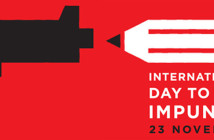NUTS & BOLTS
In a hypothetical economic model, an armchair economist can stimulate Canada’s economy either by monetary policy which means cutting interest rates or through fiscal policy by increased government spending to fuel economic activity. This is classic textbook economics.
The fiscal avenue is what the Conservatives refused to do – increased spending — as they are intent on achieving a balanced budget by doing a conservative massaging and tinkering of the national income accounts.
Government revenues, generally comes from broad economic activities as reflected in its gross domestic product (GDP), the sum total of all economic goods and services produced by a country. As a rule of thumb, every one percent drop in GDP translates to a $4.1 billion account deficit.
But the Conservatives appropriated billions in surpluses from the Employment Insurance (EI) account and sold billions more of General Motors shares, an action that cannot recur since these assets have effectively been dissipated and earmarked, to counter anticipated shortfalls in government revenues today. It also ties the Feds hands in the future.
It means Canada’s real economy contracted. It also means the EI account was used to pay for the federal government’s liabilities, including the $3 billion child welfare adjustments, instead being used to pay money — which is bridging income — to the unemployed. The net effect of this foolish financial action is that the next budget will be saddled, with billions representing the EI liability which has to be repaid, to simply to balance the 2016 budget.
Next year, a more severe contraction of the economy is expected to have an adverse effect on government revenues and money flows which can result in a bigger budgetary crisis. Will the government appropriate more money from the EI account, will the Conservatives sell other assets or cut more jobs to balance the budget opting for a Conservative Nirvana of small government? Will they ask for assistance from the International Monetary Fund (IMF)?
These moves are the net effect of balancing the budget in a sinking economy.
This year’s expensive exercise can be viewed as nothing more than a Conservative election stunt. It is nothing more than Harper’s pipe dream. A balanced budget has minimal economic impact especially if it is achieved by artificial means such as a combination of borrowings, fund realignment, spending and job cuts. A balanced budget’s benefit to the real economy is totally illusory.
The Central Bank can only hope that interest cuts can stimulate the doldrums palpable in our exports activities. Our balance of trade is horrific. In 2011, even our export data with Greece showed we exported $88 million while Greece sold us $168 million resulting in a trade deficit of $80 million. Ironically, the Greek economy is in tatters and we could soon follow.
Low oil prices and a downtrend in commodity prices actually placed Canada’s economy in technical recession. Total trade imbalance have reached over $3.4 billion with just four months data this year.
Economic adjustments in Canada’s trading partners such as the United States, China and Europe, and other outside factors, weigh heavily against achieving increments in exports.
With Iran shortly going back to the oil market under current production levels, and with an anticipated downward oil price adjustment in the world market, any capacity building activity will be further put on hold in Canada’s tar sands.
The only sector that will feel interest rate cuts will be the exchange rate which is widely bruited to go down to C$0.60 cents to a US dollar once the US raises its interest rates by fall.
The housing market is already saddled with prices at a speculative level. It will continue to attract investment from overseas but if the parity between Canadian and US dollar continue to sink, the housing sector will be in shambles.
While purchasing Canadian homes or other assets with US dollars make sense in the short term, holding on to this Canadian investment with a deteriorating Canadian currency do not. This is one of the negative effects of interest rate cuts.
As all consumer imports are priced in US dollar, inflation or even stagflation is likely to occur.
Other economists suggest that using interest rate as a financial lever – after seven years – as an economic tool it is already a spent force. Its overall effect will be – at best — minimal. We will see how this plays out.
A lot of major companies, for years now, have been sitting on their huge surpluses unwilling to invest in anything. With that kind of resources, they are not net borrowers and the Central Bank action do not affect their operations.
Low exchange rate, however, impacts their money hoard, especially if they buy US goods. I expect these companies to hedge by becoming net buyers of the US currency.
In the long term, how much basket of goods can a deteriorated currency buy at home? This will be a key political question.
The key factor that cannot be discussed in economic terms, is confidence. If there is no confidence in the Conservative’s economic governance, the economy will remain where it is. This is the key reason why a shift in monetary policy won’t solve Canada’s economic woes. But a new government probably will.
Too much fear mongering affects economic activity. This appears to be an area where Harper and his puppet Conservatives excel.
Their anti-Muslim, Jihadi rhetoric and video propaganda, copied directly from terrorist websites such as Al Shabaab, aims to conjure irrational fear.
Now, they appear to be experimenting with an old US Republican trick down South — putting Jesus in the Conservative conversation. Despite a biblical prohibition against using the name of the Lord in vain, they just can’t resist an appeal to their imaginary Bible belt constituency.
In a June 29 speech at Harvest City Church, Wai Young, the Tory MP for Vancouver South, compared the work on Bill C-51, the government’s discredited anti-terrorism act, and other presumably unconstitutional criminal justice legislation, to the life of Jesus.
“I want to share with you what I think our government is doing in the same vein – Jesus served and acted to always do the right thing, not the most popular thing.”
“We will always act and do the right thing,” Young continued, explaining that “we’ve strengthened the consequences for crime and dangerous offenders at every turn where possible” and “enacted Bill C-51.”
Young also told the congregation that “if Bill C-51 had been in place 30 years ago, Air India would never have happened. Those some 400 lives would have been saved.”
She later backtracked on her Air India account and said “she misspoke” instead of admitting she lied.
According to the Vancouver Sun, The Harvest City Church is registered as a non-profit organization with the Canada Revenue Agency. According to CRA rules, non-profit groups are prohibited from taking part in partisan political activities.
A partisan political activity, according to the CRA’s regulations, is one that involves direct or indirect support of, or opposition to, any political party or candidate for public office.
The CRA spells this rule out in one of the prohibited scenarios posted on its website, titled “Inviting competing election candidates to speak at separate events.”
The CRA says because a “charity is not giving an equal opportunity for candidates seeking the same office to speak, it is possible to infer that the charity is indirectly supporting a particular candidate for public office and is therefore engaged in a prohibited partisan political activity.”
In effect, the Harvest City Church, using the CRA scenario, is endorsing Conservative MP Wai Young as its preferred candidate, clearly a prohibited political act.
The Harper government spent $13.4 million to audit non-profits’ political activities in a bid to stop pipeline opposition. It was a Koch-inspired naked partisan political exercise that nobody dared to stop. Even the CSIS and RCMP jumped into the fray by calling pipeline activist terrorists.
The CRA should be subjected to an intense oversight under a new government on this ill-conceived Harper-inspired political activity. The power to regulate charities should also be transferred to a neutral agency.
This is precisely the kind of negative political messaging that puts an economy flat on its back.




